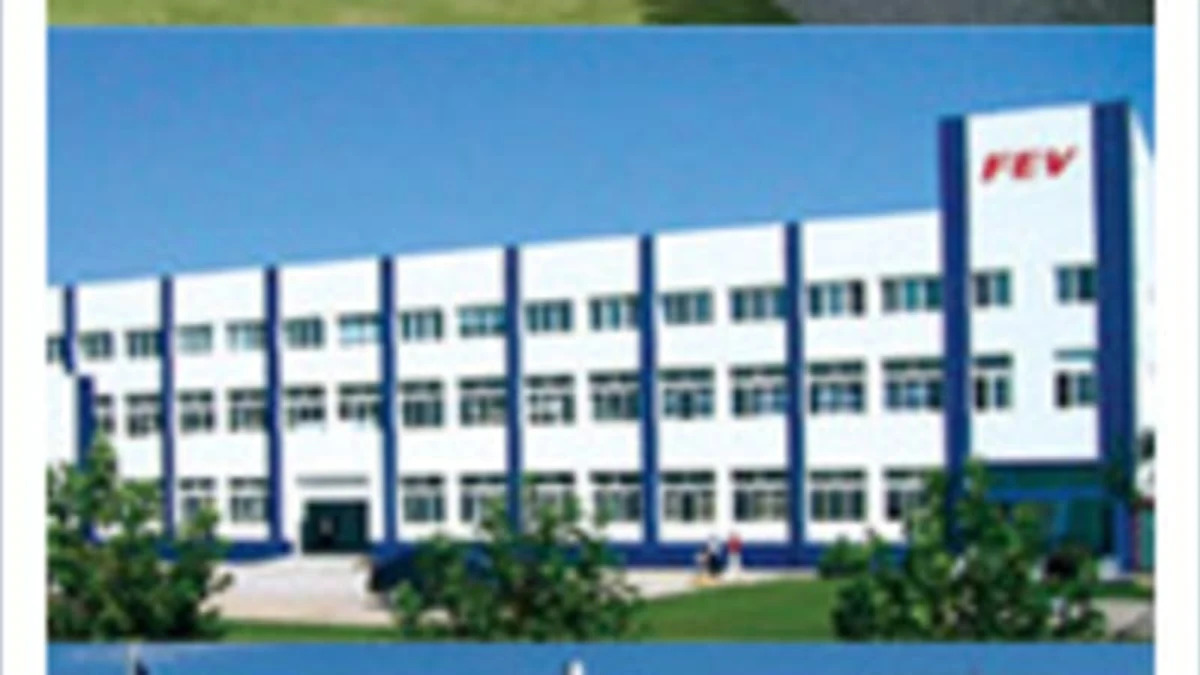There are plenty of dynamometers in the world which are capable of helping tuners get the most from their engines. There aren't very many that allow the same type of tuning for hybrids, though. Hybrid drivetrains can be very complex pieces, featuring both the internal combustion engine of a normal passenger car and the motor, controller and batteries of an electric vehicle. To get the most out of each independent system, testing is becoming increasingly important.
As any tuner knows, there's a fine line between getting everything available from the drivetrain and artificially shortening its life because its being pushed too hard, and this is especially true when it comes to batteries. To help carmakers meet these growing demands, FEV, Inc. is planning to open eight new sites equipped to allow for hybrid drivetrain development. Each site allows for the monitoring of both the engine and the electrical systems. With the increasing numbers of hybrids being sold, expect more locations like these to pop up in the near future.
[Source: FEV, Inc]
FEV, Inc. Announces Commissioning of Eight Hybrid Powertrain Test Sites, Intention to Add Two Additional
Auburn Hills, Mich., March 31, 2008 – FEV, Inc. (FEV) today announced that it has commissioned eight full hybrid powertrain development test sites. The test cells are believed to be the only non-OEM full hybrid powertrain test cells in the United States. The addition expands FEV's technical capability to accommodate the sharp increase in hybrid powertrain development by its customers. All of the hybrid powertrain test sites are fully transient capable and differ from conventional powertrain test cells primarily in terms of dynamometer capability and battery emulation/simulation.
Each of the new hybrid cells are utilized for powertrain and controller development, calibration, benchmarking, validation and durability testing. These cells, combined with FEV's experienced hybrid staff, provide its customers with the flexibility and technology to develop a wide range of current and future hybrid systems.
"The need for full development testing capabilities is becoming critical as hybrid powertrains are increasingly in demand by consumers," said Robert J. Last, vice president of operations and communications for FEV, Inc. "The future of powertrain development is no longer restricted to traditional gasoline engines, and with the commissioning of these test cells, FEV can offer the flexibility and technology to accommodate future technologies."
The test cells feature full powertrain and driveline testing capabilities allowing for full system development, including strategy and algorithm development; component, system and vehicle calibration; performance and durability testing; development of software and diagnostic functions; remote hybrid battery emulation; battery network management testing; and vehicle and powertrain benchmarking.
Last also said that "these facilities are fully utilized at the moment and demand is still increasing. In response to this demand, FEV, Inc. is planning a facility expansion that will add two to four additional hybrid test sites in 2008." Further details on the planned facility expansion will be forthcoming during the second quarter of 2008.
As any tuner knows, there's a fine line between getting everything available from the drivetrain and artificially shortening its life because its being pushed too hard, and this is especially true when it comes to batteries. To help carmakers meet these growing demands, FEV, Inc. is planning to open eight new sites equipped to allow for hybrid drivetrain development. Each site allows for the monitoring of both the engine and the electrical systems. With the increasing numbers of hybrids being sold, expect more locations like these to pop up in the near future.
[Source: FEV, Inc]
FEV, Inc. Announces Commissioning of Eight Hybrid Powertrain Test Sites, Intention to Add Two Additional
Auburn Hills, Mich., March 31, 2008 – FEV, Inc. (FEV) today announced that it has commissioned eight full hybrid powertrain development test sites. The test cells are believed to be the only non-OEM full hybrid powertrain test cells in the United States. The addition expands FEV's technical capability to accommodate the sharp increase in hybrid powertrain development by its customers. All of the hybrid powertrain test sites are fully transient capable and differ from conventional powertrain test cells primarily in terms of dynamometer capability and battery emulation/simulation.
Each of the new hybrid cells are utilized for powertrain and controller development, calibration, benchmarking, validation and durability testing. These cells, combined with FEV's experienced hybrid staff, provide its customers with the flexibility and technology to develop a wide range of current and future hybrid systems.
"The need for full development testing capabilities is becoming critical as hybrid powertrains are increasingly in demand by consumers," said Robert J. Last, vice president of operations and communications for FEV, Inc. "The future of powertrain development is no longer restricted to traditional gasoline engines, and with the commissioning of these test cells, FEV can offer the flexibility and technology to accommodate future technologies."
The test cells feature full powertrain and driveline testing capabilities allowing for full system development, including strategy and algorithm development; component, system and vehicle calibration; performance and durability testing; development of software and diagnostic functions; remote hybrid battery emulation; battery network management testing; and vehicle and powertrain benchmarking.
Last also said that "these facilities are fully utilized at the moment and demand is still increasing. In response to this demand, FEV, Inc. is planning a facility expansion that will add two to four additional hybrid test sites in 2008." Further details on the planned facility expansion will be forthcoming during the second quarter of 2008.


Sign in to post
Please sign in to leave a comment.
Continue